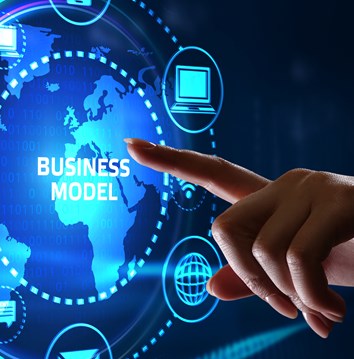
Every company is a tech company, and privacy is at the forefront
Alex Mathers attended the Consumer Electronics Show in Las Vegas in January and gave us an update from the ground.
This year’s Consumer Electronics Show in Las Vegas was again a celebration of the latest and greatest in tech. As one of the largest trade shows in the world, over 4,400 exhibitors impressed 175,000 attendees across 2.9 million square feet of technology. So far, so the same. More conspicuous was Apple formally attending – the first time the tech giant has done so in 28 years – more of that later.
Every company is a tech company
One of the most interesting aspects of this year’s CES happened on the morning of the first day – an airline gave the keynote presentation. This wasn’t just marketing – Delta demonstrated some genuinely interesting technology innovations from a ‘parallel reality’ display screen for delivering personalised content to travellers in airports to AI powered simulations to test the impact of operational decisions. The most interesting thing for me, however, was the fact that increasingly every company is a tech company – besides Delta, consumer goods giants like Proctor & Gamble and Colgate were also prominent. These big corporates are placing a high emphasis on using technology to improve customer experience, glean additional insights, gain efficiencies and generate loyalty – a trend crucial to us in the mid-market, too.
Small steps on core technologies
On the technological innovation side, this year was one of ‘small steps’. 5G showed some of the most obvious progress – with a plethora of devices (both mobile handsets but also laptops) introduced, plus conceptual demonstrations of the low-latency benefits of 5G in areas like automotive. But there’s a long way to go – roll-out of coverage is slow, and it’s likely to be some years yet before 5G really hits the mainstream.
Artificial Intelligence was everywhere again – whilst many of the concepts were already showcased last year, the level to which some form of AI is now embedded in every consumer device was striking – it’s now almost a given that devices and user interfaces will adapt themselves to contexts and the needs / behaviours of their users.
Ambient computing, a term which neatly captures both the ubiquitous nature of technology embedded into everyday devices, plus the ability of these devices to communicate with each other, was demonstrated in force across the packed Smart Home, Digital Health and Wearables halls. Within the home, the market here is still fragmented and complex however – with little evident progress on standards, likely hurting speed of adoption. Smart devices in retail and healthcare also proliferated, from the AI-powered skin assessment mirror (not flattering if you’re jet-lagged…) to a wide range of health wearables – with an interesting underpinning trend of using technology to both help customers navigate increasingly complex purchase journeys (in an age of mass personalisation) but also gather data on performance and satisfaction near real-time.
Finally, power distribution seemed more prominent this year than last. The dream of wireless charging is nothing new – after all Tesla envisioned a wireless power transmission system over 100 years ago – but far-field wireless charging technology remains in its infancy. Whilst power delivery is still low, manufacturers like Ossia were demonstrating technology capable of delivering power to multiple devices simultaneously, and this could be key to enabling a proliferation of IoT devices.
Privacy matters
Looming large across all areas this year was an increasing recognition that privacy is of utmost importance. Recall last year, when Apple trolled the whole conference taking out this huge billboard overlooking the convention centre – this was of course before a series of vulnerabilities in Apple’s iOS operating system were ‘helpfully’ highlighted by researchers at Google last August…
This year’s event featured a high-profile round-table discussion featuring both Facebook and Apple – highlighting some clear tensions both technically between processing data ‘on the device’ and ‘in the cloud’, and also in terms of winning consumer trust, especially for businesses with advertising-centric business models where data is at the core. Privacy messaging was prominent across the Smart Home area of the show too – with an increasing recognition that trust in privacy is key to the take-up of an increased range of smart devices.
This is of course also central to our thinking on data within our portfolio – we are enthusiastic advocates of applying data analytics, data science and AI to add value in the businesses we back – but in order to do this, data privacy and strong cybersecurity are non-negotiable components, and therefore a core part of our approach.
Of course CES wouldn’t be CES without some ridiculous gadgets and we also saw everything from ‘air taxis’ to robot pets – we’re looking forward to see what CES 2021 brings!
Contact


